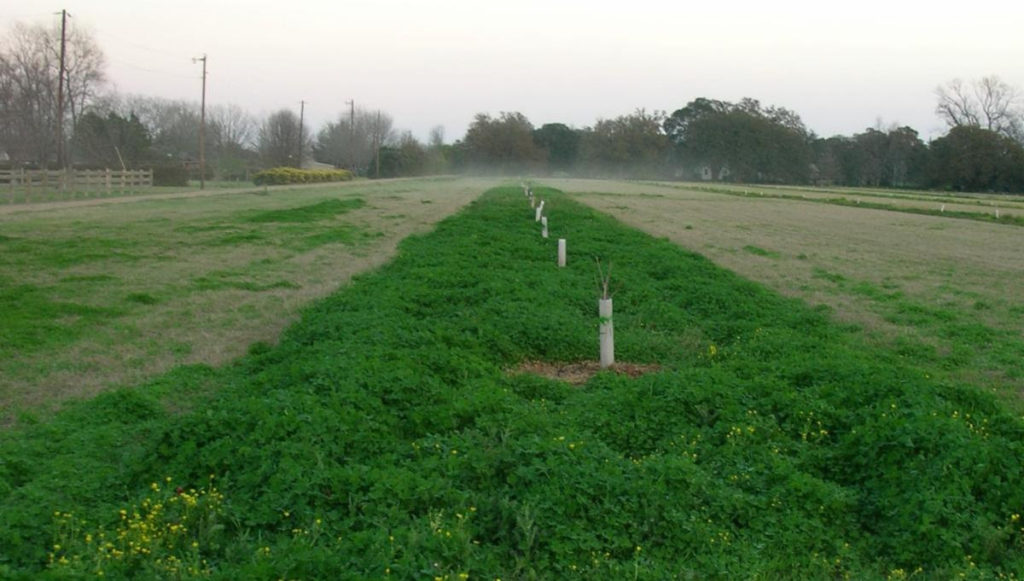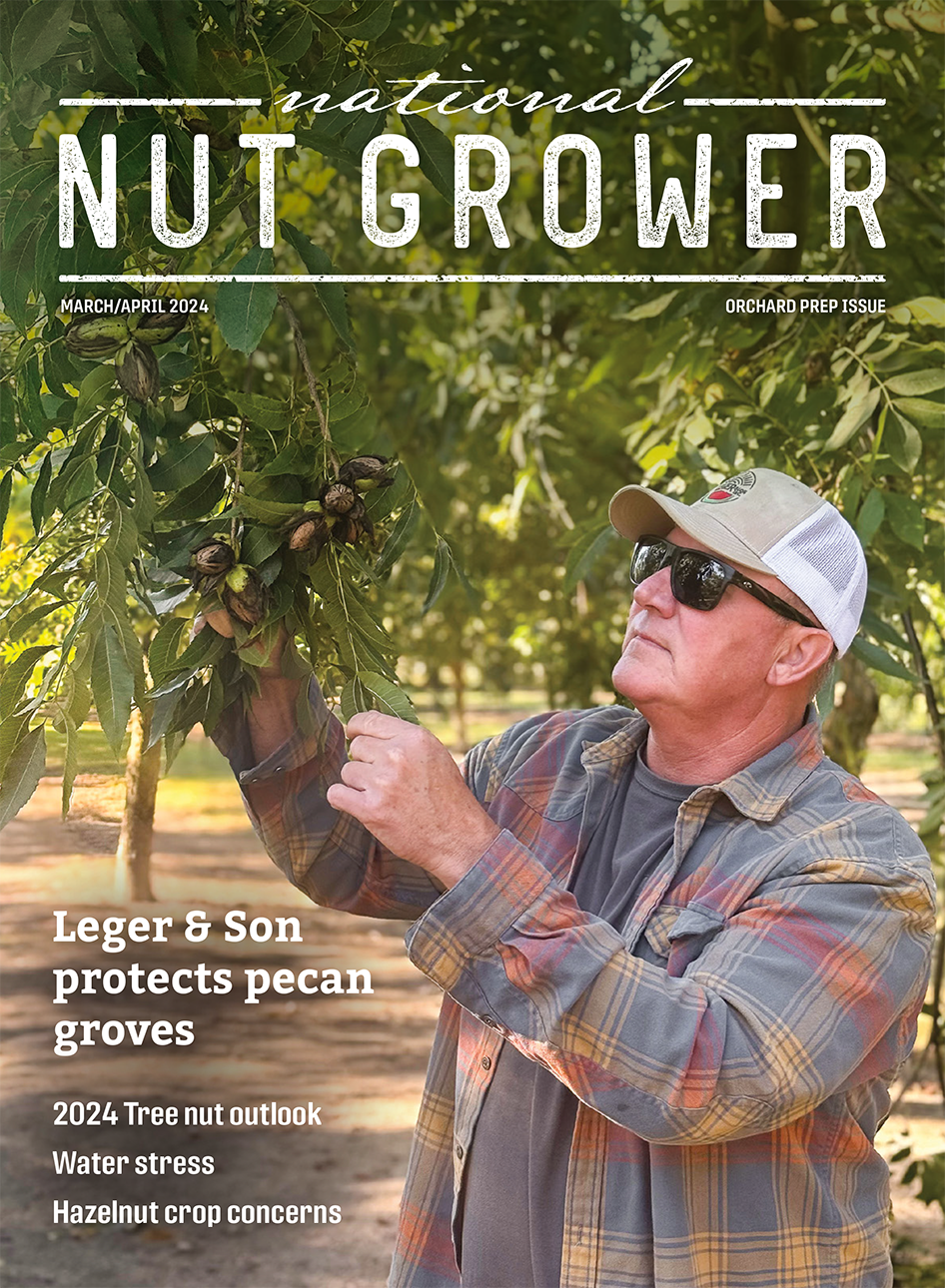
Mar 17, 2022LSU shares pecan fertilization alternatives
For some growers it might make sense to skip fertilization for a season. For those of you who have been fertilizing every year, this may not cause a major reduction in yield. Pecans in a highly managed setting often have enough mineral nutrient reserves to endure a season of lower fertility. As a word of caution, you will start to notice significant reductions if you go beyond one growing season with no fertilizer inputs.
Pecans are noted for not having root hairs. That causes them to often be less efficient at taking up mineral nutrients from the soil. This has several practical implications. The main one is that they can be slower to recover from nutrient deficiency. Once a tree has exhausted its mineral reserves it will take a bit longer to replace them than some other commodities. That is why I would not recommend going longer than one or two seasons without some fertility input. After several growing seasons with no inputs, it might take three to five seasons to get back to sufficiency levels. Overall, a good general rule is that if you have an orchard with sufficient nutrient levels, you may be able to skip one season of fertilization, but you will likely start to see negative effects after two seasons with no input.
I would encourage our growers to look into alternative fertility management techniques. One of my favorites is cover cropping with clover. Research from the University of Georgia has indicated that a good stand of clover can add up to 100 to 150 pounds per acre of nitrogen to the orchard floor. In some systems, this can be enough to eliminate the need for nitrogen fertilization, but there are several factors to consider.
The main limitation to cover cropping clover in Louisiana is orchard spacing. Many of our older orchards have not been thinned at prescribed intervals. In addition to increasing disease pressure, it also creates a shady orchard floor where clover can not thrive later in its growing season. This can significantly decrease the amount of nitrogen fixation that occurs and create weak stands that reseed poorly. If you want to get the most out of your clover stand, make sure you have good sunlight penetration to your orchard floor.
Another factor to consider is when will your trees be able to access the nitrogen that the clover fixes. The truth is that clover is not going to just give up its resources freely. It spends a significant amount of its carbohydrate reserves to subsidize nitrogen fixation. The nitrogen from clover will only be available to your trees after the clover has been mowed down late in the season. This does have a twofold benefit, as this process will greatly increase the organic matter present in the top layer of your soil as well. This does mean that the tree may be delayed in getting nitrogen until later in the growing season. I would view clover cropping as a long-term investment in your orchard’s nitrogen resources. It may be year 2 before you start to yield nitrogen benefits.
Clover is also great for attracting beneficial insects to your orchard. It creates a habitat that allows them to thrive and be in reserve. You may find that you need less insecticide applications if your population of beneficials increases. You can aid this process by being more selective in what insecticides you do apply and ensuring you are more targeted in your applications.
Always be on the lookout for alternative fertilization products as well. I find that what is available varies greatly based on location within the state. Some of our growers may be lucky enough to utilize an agricultural byproduct or other resource for fertilization. Each byproduct comes with its own set of challenges and benefits.
I would encourage you to consult several sources before committing to one. If you find something you think might be useful, feel free to contact me and we can visit about it. You can email me at MPolozola@agcenter.lsu.edu.
– Michael Polozola, Louisiana State University







